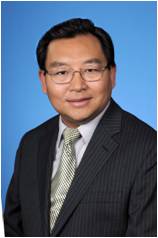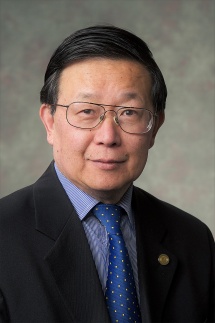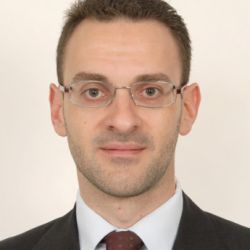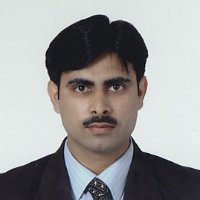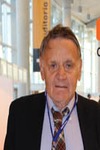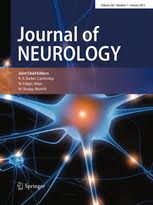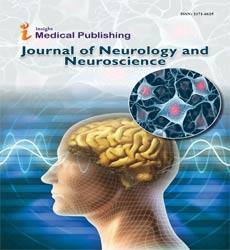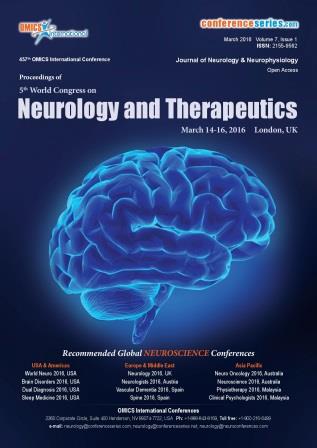Theme: Breakthroughs and Achievements in Neurocognitive Research
Cognitive Neuroscience 2018
On behalf of Orgnaizing Committee invites all the participants from all over the world to attend the prestigious Scientific Conference on Cognitive Neuroscience during Oct 18-19, 2018 at Warsaw, Poland which encompass Keynote presentations, Oral Presentation, Poster presentations and Exhibitions
Cognitive Neuroscience 2018 is a global platform to discuss and learn about early detection as well as treatment, care based on Professional standards, and increased research to accomplish cure for all cognitive Disorders. The conference includes leading international experts in Neurocognitive Disorders hospitals specialists, doctors, research scholars and general practitioners form all over the world.
Neurocognitive disorders can affect memory, concentration, Knowledge, language, view, and social cognition. They interfere extremly with a person’s everyday independence in Major Neurocognitive Disorder, but not so in Minor Neurocognitive Disorder.
Track 1: NEUROCOGNITIVE DISORDERS
Neurocognitive disorders are characterized by decline from an attained level of cognitive functioning mainly when physical changes occurs in brain, such as after neurological and mental illness, drug use, or brain injury. The two major degenerative causes of dementia are Alzheimer's disease and vascular dementia. Dementia is usually caused by degeneration in the cerebral cortex, the part of the brain responsible for thoughts, memories, actions, and personality. Death of brain cells in this region leads to the cognitive impairments that characterise dementia. Vascular dementia is the broad term for dementia associated with problems of circulation of blood to the brain.
Related: Neurology Conferences | Neurology Congress | Neurocognitive disorders Conferences|Cognitive Neuroscience conferences |Neuroscience Conferences
10th International Conference on Vascular Dementia, February 22-23, 2018 Paris, France, 21st World Congress on Neurology and Therapeutics, March 15-17, 2018 London, UK, 8th Global Experts Meeting on Advances in Neurology and Neuropsychiatry, August 27-28, 2018 Tokyo, Japan, 11th International Conference on Alzheimer’s Disease & Dementia, March 29-31, 2018, Vienna, Austria, 25th World Congress on Neurology & Neuroscience, June 14-16, 2018 Amsterdam, Netherlands Genetic Dissection of Brain Circuits and Behavior in Health and Disease 14–18 Jan 2018 Colorado, US, ASN 2018 Meeting 24–28 Mar 2018 California, US , Adult Neurogenesis 2018 02-04 May 2018 Dresden, Germany , Advances in Neurodegenerative Diseases Research and Therapy 17–21 Jun 2018 Colorado, US, New Frontiers in Neuroinflammation: What Happens When CNS and Periphery Meet?17–21 Jun 2018 Colorado, US
Related Associations:
American Psychological Association (APA), Vestibular Disorders Association (VDA), American Psychological Society ( APS), American Payroll Association ( APA ), Association for Psychological Science (APS)
Track 2: COGNITION AND BEHAVIOUR
When nerve cells in the brain are damaged, they can no longer send information to each other in the normal way. This causes changes in the person's behaviour and abilities.Individuals with a moderate-to-severe brain injury often have problems in basic cognitive (thinking) skills such as paying attention, concentrating, and remembering new information and events. They may think slowly, speak slowly and solve problems slowly and confused easily when normal routines are changed or when things become too noisy or hectic around them. They may have speech and language problems, such as trouble finding the right word or understanding others. After brain injury, a person may have trouble with all the complex cognitive activities necessary to be independent and competent in our complex world. The brain processes large amounts of complex information all the time that allows us to function independently in our daily lives. This activity is called executive function because it means being the executive or being in charge of one's own life.
Related: Neurology Conferences | Neurology Congress | Neurocognitive disorders Conferences|Cognitive Neuroscience conferences |Neuroscience Conferences
25th World Congress on Neurology & Neuroscience, June 14-16, 2018 Amsterdam, Netherlands,8th Global Experts Meeting on Advances in Neurology and Neuropsychiatry, August 27-28, 2018 Tokyo, Japan,11th International Conference on Alzheimer’s Disease & Dementia ,March 29-31, 2018, Vienna, Austria, 7th International Conference on Brain and Neurological Disorders ,Apr 10-12, 2018 Amsterdam, Netherlands, 3rd International Conference on Neuro-Oncology and Brain Tumor, April 19-20, 2018 Dubai, UAE, 11th FENS Forum of Neuroscience 07–11 Jul 2018, Berlin, Germany Society for Neuroscience 2018 03–07 Nov 2018, San Diego, US,8th European Neurology Congress 23 Sep 2019, Amsterdam, Netherlands,WCNND-2017-World Congress on Neurology and Neurological disorders 05-06 Nov 2017 Chicago, US, Neurological Emergencies 09-11 Nov 2017 Boston, US
Related Associations:
Schizophrenia International Research Society (SRIS), American Delirium Society (ADS), Anxiety and Depression association of America (ADAA), National Association of Alcohol, Drugs and Dependency (NAADD), Canadian Mental Health Association (CMHA)
Track 3:DEMENTIA
Dementia is usually caused by degeneration in the cerebral cortex, the part of the brain responsible for thoughts, memories, actions, and personality. Death of brain cells in this region leads to the cognitive impairments that characterise dementia. Causes of dementia include head injury, brain tumours, infections, hormone disorders, metabolic disorders, hypoxia, nutritional deficiencies, drug abuse, or chronic alcoholism. Unfortunately, most disorders associated with dementia are progressive ,degenerative and irreversible. The two major degenerative causes of dementia are Alzheimer's disease and vascular dementia Multiple neuropathologic processes may underlie dementia, including both neurodegenerative diseases and vascular disease. Dementia is most common in elderly individuals, with advancing age being the strongest risk factor.
Related: Neurology Conferences | Neurology Congress | Neurocognitive disorders Conferences|Cognitive Neuroscience conferences |Neuroscience Conferences
4th International Conference on Neurological Disorders & Stroke, April 19-20, 2018 Dubai, UAE,22nd International Conference on Neurology & Neurophysiology, April 23-25, 2018 Rome, Italy,4th International Conference on Mental Health & Human Resilience, April 26-27, 2018 Rome, Italy 8th International Conference on Addictive Disorders and Alcoholism, May 17-18, 2018 Singapore,12th Global Neurologists Annual Meeting on Neurology and Neuro Surgery May 17-18, 2018 Singapore, Miami Brain Symposium, Inaugural 01 Dec 2017 Coral Gables, US,EMINS 2018 — 6th International Congress of the Emirates Neurology Society (EMINS)12-13 Jan 2018, Dubai, UAE, Keystone Symposia: State of the Brain-Genetic Dissection of Brain Circuits and Behavior in Health and Disease 14-18 Jan 2018, US,HAI 2018 — HUMAN AMYLOID IMAGING CONFERENCE Jan 17 - 19 2018Miami, United States16th Annual Mild Cognitive Impairment Symposium, Special Topic Workshop and Alzheimer's Public Educational Forum, Jan 20 - 21Miami Beach, US
Related Associations :
Dementia Society of America (DSA)The Association for Frontotemporal Degeneration (AFD)International Huntington’s Association (IHA), European Huntington Association (EHA), American Parkinson Disease Association (APDA)
Track 4 : VASCULAR DEMENTIA
Vascular dementia is the broad term for dementia associated with problems of circulation of blood to the brain. Vascular brain injury (VBI) is widely recognized as a common cause of cognitive impairment (vascular cognitive impairment) culminating in vascular dementia. Most vascular dementia cases are sporadic and share risk factors with peripheral vascular disease. Vascular dementia is not a single disease; it is a group of syndromes relating to different vascular mechanisms.
Related: Neurology Conferences | | Neurology Congress | Neurocognitive disorders Conferences| Cognitive Neuroscience conferences |Neuroscience Conferences
4th Global Experts Meeting on Parkinson’s & Movement Disorders May 17-18, 2018 Singapore, 24th International Conference on Neuroscience and Neurochemistry May 24-26, 2018 BARCELONA, SPAIN,10th World Congress on Alzheimer’s Disease & Dementia May 30-31, 2018 Osaka, Japan,3rd International Conference on Exhibition and Dual Diagnosis June 11-13, 2018 London, UK,3rd International Conference on Spine and Spinal Disorders, June 11-13, 2018 London, UKAmericas Committee for Treatment and Research in Multiple Sclerosis 2018 Forum Feb 01-03 San Diego ,FusionConferences NeuroepigeneticsandNeuroepitranscriptomics-FusionConference Feb 24-27 2018, Cancun, Mexico, Fusion Conferences —NuclearReceptors - Fusion conference27,Feb - 02 Mar 2018, Cancun, Mexico, EMBO Workshop-Neural development Mar 02- 06 2018 , Taipei, Taiwan, Fusion Conferences-Genomic Instability and Gene Therapeutics in Neurological Diseases - Fusion Conference Mar 05-08 2018 Cancun, Mexico
Related Associations :
Vascular Dementia Stroke Association (VDSA)Vascular Dementia Alzheimer Association (VDAA), National Stroke Association (NSA), Lewy Body Association (LBA), American Parkinson Disease Association (APDA).
Track 5: PATHOGENESIS OF COGNITIVE DISORDERS
The classic Neuro pathological signs of Cognitive disorders are amyloid plaques and neurofibrillary tangles. Plaques consist largely of the protein fragment beta-amyloid. This fragment is produced from a "parent" molecule called amyloid precursor protein. Tangles consist of tau, a protein normally involved in maintaining the internal structure of the nerve cell. While tau is normally modified by phosphorylation, or the attachment of phosphate molecules, excessive phosphorylation appears to contribute to tangle formation and prevents the protein from carrying out its normal functions. Oxidative stress, or damage to cellular structures by toxic oxygen molecules called free radicals, is also regarded as a pathology characteristic of Alzheimer’s. Individuals with Alzheimer’s typically experience brain inflammation. Many of the oldest patients with Alzheimer’s show signs of cerebrovascular disease in addition to "classic" Alzheimer's neuropathology.
Related: Neurology Conferences | Neurology Congress | Neurocognitive disorders Conferences|Cognitive Neuroscience conferences |Neuroscience Conferences
22nd International Conference on Neurology & Neurophysiology, April 23-25, 2018 Rome,Italy,3rd International Conference on Spine and Spinal Disorders June 11-13, 2018 London, UK4th World Congress onParkinsons & Huntington Disease, August 29-30, 2018 Zurich, Switzerland25th World Congress on Neurology and Neurodisorders July 16-17, 2018 Melbourne, Australia,4th International Conference on Epilepsy & Treatment, August29-30, 2018 Zurich, Switzerland, International conference of Neurology and Brain Disorders Mar 19 -21 2018 Valencia, Spain ALZHEIMER‘S DISEASE: AN OVERVIEW 22 Mar 2018 London, United Kingdom Adult Neurogenesis 02 May-04 2018 Dresden, Germany, EMBO Workshop - Molecular neurobiology, May 08 -12 2018 Hera lion, Greece2nd International Conference on neurology and brain disorders 04 Jun- 06 2018 Rome, Italy
Related Associations:
National Multiple sclerosis society (NMSS), Lewy Body Dementia Association (LBDA) Association of prior stroke with Cognitive function and Cognitive impairment (ASCCI), Vascular Dementia –Alzheimer’s Association (VDAA)
Track 6: COGNITIVE NEUROSCIENCE
Cognitive neuroscience is the scientific field that is concerned with the study of the biological processes and aspects that underlie cognition, with a specific focus on the neural connections in the brain which are involved in mental processes. It addresses the questions of how cognitive activities are affected or controlled by neural circuits in the brain. Cognitive neuroscience is a branch of both neuroscience and psychology, overlapping with disciplines such as physiological psychology, cognitive psychology, and neuropsychology. Cognitive neuroscience relies upon theories in cognitive science coupled with evidence from Neuropsychology, and Computational modelling .
Related : Neurology Conferences | Neurology Congress | Neurocognitive disorders Conferences|Cognitive Neuroscience conferences |Neuroscience Conferences
7th International Conference on Neurological Disorders and Stroke, September 10-12, 2018 Dublin, Ireland, 4th World Congress on Parkinson’s & Huntington Disease, August 29-30, 2018 Zurich, Switzerland, 4th International Conference on Spine and Spinal Disorders, September 13-14, 2018 Prague, Czech Republic, 12th World Congress on Advances and Innovations in Dementia Sep 17-18, 2018 Singapore, 5th International Conference on Spine and Spinal Disorders November 5-6, 2018 San Francisco, USA ,International Conference on Neurology and Brain Disorders Jun 04-06 Jun 2018 Rome, Italy, Neurology 2018, 12 Jul -13 Jul 2018 Paris, France,Movement-2018: Brain, Body, Cognition 27 Jul-29 Jul 2018 Boston, United States, International Conferences and Meetings on BRAIN and COGNITION MOVEMENT 27 Jul -29 Jul 2018, United States, SPIN 2018-23rd International Spin Symposium Sep 10 - 14 Sep 2018, Ferrara, Italy
Related Associations :
National Institute of Mental Health (NIMH), National Alliance on Mental Illness (NAMI),National Institute of Neurological dis orders and Stroke (NINS), American Academy of Neurological and Orthopaedic Surgeons (AANOS), American Academy of Neurology (AAN).
Track 7: NEURODEGENERATION AND AGING
A Neurodegenerative disease includes Alzheimer's, Huntington's, Parkinson's, and the prion maladies, are genetically and pathologically linked to aberrant protein aggregation. AD, the most common type of dementia, is typically sporadic; however, rare mutations in several genes confer early onset. Release of the aggregation-prone peptides Aβ1–40 and Aβ1–42 by endoproteolysis of the amyloid precursor protein (APP) is associated with AD through an unknown mechanism that appears to be associated with Aβ aggregation. Typically, individuals who carry AD-linked mutations present with clinical symptoms during their fifth or sixth decade, while sporadic cases appear after the seventh decade. Although aggregation-mediated neurodegeneration emerges late in life, it is unclear whether this late onset is mechanistically linked to the aging process.Amyotrophiclateralsclerosis (ALS) is a progressive neurodegenerative disorder of the motor neurons in the spinal cord, brainstem, and motor cortex.
Related: Neurology Conferences | Neurology Congress | Neurocognitive disorders Conferences|Cognitive Neuroscience conferences |Neuroscience Conferences
7th International Conference on Neurological Disorders and Stroke, September 10-12, 2018 Dublin, Ireland ,10th International Conference on Vascular Dementia, Feb 22-23, 2018 Paris, France, 4th International Conference on Neurological Disorders & Stroke, April 19-20, 2018 Dubai,UAE,4th Global Experts Meeting on Parkinson’s & Movement Disorders May 17-18, 2018 Singapore,3rd International Conference on Exhibition and Dual Diagnosis June 11-13, 2018 London, UK,Society for Neuroscience 2018 Annual Meeting Nov 03-07, 2018, San Diego, United States, Neurology 2018, 12 Jul -13 Jul 2018 Paris, France, International Conference on Neurology and Brain Disorders 04 Jun-06 Jun 2018 Rome, Italy
Related Associations:
American Chronic Pain Association (ACPA), Foundation for Peripheral Neuropathy (FPN), Neuropathy Association, Muscular Dystrophy Association (MDA), Charcot-Marie-Tooth Association (CMTA), American Society for Peripheral Nerve
Track 8: NEUROPSYCHIATRY
Neuropsychiatry is a branch of medicine that deals with mental disorders attributable to diseases of the nervous system. It preceded the current disciplines of psychiatry and neurology. However, psychiatry and neurology subsequently split apart and are typically practiced separately. Nevertheless, Neuropsychiatry has become a growing subspecialty of psychiatry and it is also closely related to the fields of neuropsychology and Behavioral Neurology, addresses clinical problems of cognition and/or behaviour caused by brain injury or brain disease. The division’s neuropsychiatry works collaboratively with the department’s neurologists to treat and manage the emotional and cognitive symptoms of neurological diseases. Such symptoms can include depression, anxiety, psychosis, hallucinations, and/or cognitive loss. Treatment can include psychotherapy and/or medication
Related : Neurology Conferences | Neurology Congress | Neurocognitive disorders Conferences|Cognitive Neuroscience conferences |Neuroscience Conferences
4th World Congress on Parkinson’s & Huntington Disease August 29-30, 2018 Zurich, Switzerland21st World Congress on Neurology and Therapeutics, March 15-17, 2018 London, UK 8th Global Experts Meeting on Advances in Neurology and Neuropsychiatry, August 27-28, 2018 Tokyo, Japan,12th World Congress on Advances and Innovations in Dementia Sep 17-18, 2018 Singapore,10th World Congress on Alzheimer’s Disease & Dementia, May 30-31, 2018 Osaka, JapanHAI 2018 -HUMAN AMYLOID IMAGING CONFERENCE Jan 17 - 19 2018Miami, United States,Adult Neurogenesis 2018 02-04 May 2018 Dresden, Germany, 16th Annual Mild Cognitive Impairment Symposium, Special Topic Workshop and Alzheimer's Public Educational ForumJan 20 - 21Miami Beach, United States, International Conferences and Meetings on BRAIN and COGNITION -MOVEMENT 27 Jul -29 Jul 2018, United States, Keystone Symposia: State of the Brain - Genetic Dissection of Brain Circuits and Behaviour in Health and Disease 14-18 Jan 2018, US
Related Associations :
American Neuropsychiatric Association (ANA) ,International Neuropsychiatric Association (INA), World Psychiatric Association (WPA),Mood Disorders Society of Canada (MDSC),American Academy of Neurology (AAN)
Track 9: APPROACHES FOR NEURAL DYNAMICS
Neural dynamics is the study of the nervous system's remarkable capacity to change, and, at a systems level, the dynamic interplay between integration and segregation of brain regions enables all aspects of behaviour, including learning, memory, homeostasis and sensorimotor control. Real-time collision-free path planning and tracking control of a nonholonomic mobile robot in a dynamic environment is investigated using a neural dynamics based approach. The real-time robot path is generated through a dynamic neural activity landscape of a topologically organized neural network that represents the changing environment. The dynamics of each neuron is characterized by an additive neural dynamics model. The effectiveness and efficiency of this approach are demonstrated through simulation studies. A new approach to neural dynamics by using combined TMS and EEG recordings.
Related: Neurology Conferences | Neurology Congress | Neurocognitive disorders Conferences| Cognitive Neuroscience conferences |Neuroscience Conferences
11th International Conference on Alzheimer’s Disease & Dementia, March 29-31, 2018, Vienna, Austria,12th Global Neurologists Annual Meeting on Neurology and Neuro Surgery, May 17-18, 2018 Singapore, 4th Global Experts Meeting on Parkinson’s & Movement Disorders May 17-18, 2018 Singapore, 25th World Congress on Neurology & Neuroscience, June 14-16, 2018 Amsterdam, Netherlands, 12th World Congress on Advances and Innovations in Dementia Sep 17-18, 2018 Singapore, International conference of Neurology and Brain Disorders Mar 19 -21 2018 Valencia, Spain, ALZHEIMER’S DISEASE: AN OVERVIEW 22 Mar 2018 London, United Kingdom,16th Annual Mild Cognitive Impairment Symposium, Special Topic Workshop and Alzheimer's Public Educational Forum, Jan 20 - 21Miami Beach, United States, International Conferences and Meetings on BRAIN and COGNITION-MOVEMENT 27 Jul -29 Jul 2018 , United States, Keystone Symposia: State of the Brain - Genetic Dissection of Brain Circuits and Behaviour in Health and Disease 14-18 Jan 2018,US
Related Associations:
National Headache Foundation: (NHF), American Headache Society (AHS), Headache and Migraine Organizations (HMO), American Headache and Migraine Association (AHMA), The National Migraine Association (TNMA), Ontario Headache & Migraine Charity.
Track 10:NEUROLOGY NURSING
Neurological Nursing is a very challenging nursing specialty dealing with assessment, nursing diagnosis, and management of many neurological disorders for which nurses provide patient care. They are expected to work at health care clinics, hospitals and Intensive rehabilitation and brain injury units assisting complex Neuro surgeries, or with procedures in Neurointerventional Radiology and even in Clinic research areas. This includes trauma, brain injuries, stroke, seizures, tumours, headaches, infections, and aneurysms, as well as a host of other neurological complexities.
Related : Neurology Conferences | Neurology Congress | Neurocognitive disorders Conferences| Cognitive neuroscience conferences |Neuroscience Conferences
10th World Congress on Alzheimer’s Disease & Dementia May 30-31, 2018 Osaka, Japan, 4th International Conference on Epilepsy& Treatment August 29-30, 2018 Zurich, Switzerland,3rd International Conference on Exhibition and Dual Diagnosis June 11-13, 2018 London, UK,22nd International Conference on Neurology & Neurophysiology, April 23-25, 2018 Rome, Italy, 4th Global Experts Meeting on Parkinson’s & Movement Disorders, May 17-18, 2018, Singapore,HAI 2018- HUMAN AMYLOID IMAGING CONFERENCE Jan 17 - 19 2018Miami, United States,Movement-2018: Brain, Body, Cognition 27 Jul-29 Jul 2018 Boston, United States, ALZHEIMER’S: AN OVERVIEW 22 Mar 2018 London, United Kingdom, International conference of Neurology and Brain Disorders Mar 19 -21 2018 Valencia, Spain, Fusion Conferences -Nuclear Receptors - Fusion conference27 Feb - 02 Mar 2018, Cancun, Mexico UK
Related Associations:
American Association of Neuroscience Nurses (AANN),Neuroscience Nursing (NN), Canadian Association of Neuroscience Nurses (CANN), British Association of Neuroscience Nurses (BANN) American Association of Nurse Practitioners (AANP)
Track 11: NON-PHARMACOLOGICAL MANAGEMENT
It is increasingly recognised that pharmacological treatments for dementia should be used as a second-line approach and that non-pharmacological options should, in best practice, pursued first. Non Pharmacological management include Standard therapies, Behavioural therapy, Reality orientation, Validation therapy etc. Reality orientation is one of the most widely used management strategies for dealing with people with dementia. It aims to help people with memory loss and disorientation by reminding them of facts about themselves and their environment.
Related: Neurology Conferences | Neurology Congress | Neurocognitive disorders Conferences| Cognitive Neuroscience conferences |Neuroscience Conferences
22nd International Conference on Neurology & Neurophysiology, Apr 23-25, 2018 Rome, Italy3rd International Conference on Exhibition and Dual Diagnosis June 11-13, 2018 London, UK4th Global Experts Meeting on Parkinson’s & Movement Disorders, May 17-18, 2018, Singapore,5th International Conference on Spine and Spinal Disorders , Nov 5-6, 2018 San Francisco, USA,8th International Conference on Addictive Disorders and Alcoholism, May 17-18, 2018 Singapore,16th Annual Mild Cognitive Impairment Symposium, Special Topic Workshop and Alzheimer's Public Educational Forum Jan 20 - 21Miami Beach, United States Movement-2018:Brain, Body, Cognition 27 Jul-29 Jul 2018 Boston, United States, Adult Neurogenesis 2018 02-04 May 2018 Dresden, Germany ,International Conferences and Meetings on BRAIN and COGNITION -MOVEMENT 27 Jul -29 Jul 2018 , United States.
Related Associations:
Association for Behavioral and Cognitive Therapies (ABCT),Japanese Association of Behaviour Therapy (JABT),Association for advancement of Behaviour therapy (ABT),Jersey Alzheimer’s Association (JAA), International Association for Cognitive Psychotherapy (IACP)
Track 12: NEUROPHARMACEUTICS
A drug used to treat Neuropsychiatric, Neuropsychological, or Nervous-system disorders. Neuro-pharmaceutics focuses on identification of therapeutic targets, and then translating those discoveries into drug and therapy development. Research in Neuropharmaceutics includes: drug discovery for limiting high frequency activity in Epilepsy; drug transport proteins that control drug distribution to target tissues; spinal delivery of analgesics to chronic pain treatment; drugs for the treatment of depression, bipolar disorder, and schizophrenia; intranasal delivery methods for the treatment of Alzheimer’s disease; development of strategies to evaluate therapeutics on preclinical models of Alzheimer’s and Parkinson’s disease; anti-atherogenic and anti-diabetic therapies for the prevention and treatment of AD and other age-related dementias; and development of analgesic agents for chronic pain
Related: Neurology Conferences | Neurology Congress | Neurocognitive disorders Conferences| Cognitive Neuroscience conferences |Neuroscience Conferences
8th Global Experts Meeting on Advances in Neurology and Neuropsychiatry, August 27-28, 2018 Tokyo, Japan, 4th International Conference on Epilepsy & Treatment August 29-30, 2018 Zurich, Switzerland, 3rd International Conference on Spine and Spinal Disorders June 11-13, 2018 London, UK, 4th International Conference on Epilepsy & Treatment, August 29-30, 2018 Zurich, Switzerland,11th International Conference on Alzheimer’s Disease & Dementia, March 29-31, 2018, Vienna, Austria, International Conferences and Meetings on BRAIN and COGNITION- MOVEMENT 27 Jul -29 Jul 2018, United States, International Conference on Neurology and Brain Disorders 04 Jun-06 Jun 2018 Rome, Italy, State of the Brain: Genetic Dissection of Brain Circuits and Behavior in Health and Disease 14–18 Jan 2018 Colorado, US, International conference of Neurology and Brain Disorders Mar 19 -21 2018 Valencia, Spain
Related Associations:
The Brain Association for Psychopharmacology (BAP), American Association for Clinical Psychopharmacology (AACP), American Psychiatric Association (APA), American College of Neuropsychopharmacology (ACNP) , American Society for Pharmacology and Experimental Therapeutics (ASPET) , American Academy of Neurology (AAN)
Track 13: NEUROTHERAPEUTICS
It is an older term for the treatment of disorders that affect the nervous system which psychological, psychiatric, and nervous disorders. Neurotherapeutics is a quarterly peer-reviewed medical journal covering research on experimental treatments of neurological disorders. There is a profound increase in the diagnostics procedure and drug discovery in the field of Neurology. It includes Stem cells and treatment, Nerve injury and repair Clinical Case report, Neurogenesis, cell and gene based approach and Neurotransmitter release and cell repair.
Related: Neurology Conferences | Neurology Congress | Neurocognitive disorders Conferences| Cognitive neuroscience conferences |Neuroscience Conferences
4th Global Experts Meeting on Parkinson’s & Movement Disorders May 17-18, 2018 Singapore,4th World Congress on Parkinson’s & Huntington Disease Aug 29-30, 2018 Zurich, Switzerland10th International Conference on Vascular Dementia, Feb 22-23, 2018 Paris, France25th World Congress on Neurology & Neuroscience, June 14-16, 2018 Amsterdam, Netherlands11th International Conference on Alzheimer’s Disease & Dementia, March 29-31,2018, Vienna, Austria, Fusion Conferences Nuclear Receptors - Fusion conference27,Feb - 02 Mar 2018, Cancun, Mexico, Society for Neuroscience 2018 03–07 Nov 2018, San Diego, US, International Conferences and Meetings on BRAIN and COGNITION- MOVEMENT 27 Jul -29 Jul 2018, United States, EMBO Workshop -Neural development Mar 02- 06 2018 , Taipei, Taiwan, State of the Brain: Genetic Dissection of Brain Circuits and Behaviour in Health and Disease 14–18 Jan 2018 Colorado, US.
Related Associations:
American Society for Experimental Neurotherapeutics (ASEN), Neurologist Association, National Institute of Mental Health (NIMH), National Institute of Neurological Disorders and Stroke (NINDS), National Center for Complementary and Alternative Medicine (NCCAM).
ConferenceSeriesllc Ltd invites all the participants from all over the world to attend ‘Cognitive Neuroscience 2018 during October 18-19,2018 at Warsaw, Poland which includes prompt keynote presentations, Oral talks, Poster presentations and Exhibitions.
Neurocognitive disorders includes Alzheimer’s disease, is one of the biggest global public health challenges facing our generation. Worldwide, at least 46 million people are living with dementia this number is expected to double by 2030 and more than triple by 2050 to 116 million. Much of the increase will be in developing countries like Western Europe and North America. Already 62% of people with dementia live in developing countries. Today, over 35 million people worldwide currently live with the condition. This number is expected to double by 2030 and more than triple by 2050 to 116 million. No treatments available to slow or stop the brain damage caused by Alzheimer’s disease, several medications can temporarily help improve the symptoms of dementia for some people. In two decades, it is estimated that 1.4 million Canadians will have dementia, costing the economy almost $300 billion per year. Globally, dementia cost $600 billion a year.
The term Dementia describes a loss of mental ability (cognitive impairment) associated with gradual death of brain cells. Vascular Dementia can be caused by a number of different diseases, usually neurodegenerative diseases, such as Alzheimer's disease, front temporal dementia and dementia with Lewy bodies. Vascular dementia is caused when the brain's blood supply is restricted or stopped, leading brain cells to die.
Delirium is defined as a transient, usually reversible, cause of cerebral dysfunction and manifests clinically with a wide range of neuropsychiatric abnormalities. It can occur at any age, but it occurs more commonly in patients who are elderly and have compromised mental status.
Delirium occurs in 30% of those in emergency departments. Occurrence rates vary from 11-42% and it is the most common complication of hospitalization in the elderly population. The incidence is also higher in those with pre-existing cognitive impairment. The prevalence is higher in patients with malignancy and HIV. Despite these facts, delirium remains under diagnosed and poorly managed - only 20-50% is recognized by healthcare professionals.
Why to attend?
Cognitive Neuroscience 2018 will provide an opportunity for all stakeholders working on Alzheimer’s disease and Dementia to talk about their work. Neurocognitive disorders will congregate renowned speakers, principal investigators, experts, neurologist’s and Dementia researchers from both academia and health care industry will join together to discuss their views and research. The conference will be comprised of sessions by world class experts in the field of neurology. In Neurocognitive disorders international symposiums, B2B meetings, international workshops will also be organized to discuss the specific topics in the field of Dementia and Neurology.
Target Audience:
- Neurologists and Directors
- Physicians
- Neuroscientists
- Specialists
- researchers
- Health care professionals
- Professors
- Industrial Experts
- Neurosurgeons
- Psychiatrist
- Nutritional Scientists
- Lecturers and Students from Academia in the study of Dementia
- Students from Academia in the research of Neurology
It is our pleasure to welcome you to the Cognitive neuroscience to be held in Warsaw, Poland from October 18-19, 2018.
The organizing committee is gearing up for an exciting and informative program on a variety of topics, poster presentations and various programs for participants from all over the world. Unsurpassed substantiation cure for Neurocognitive disorders clearly shows that the close association of families and careers in the care of their loved ones is key to improving early revealing of Vascular Dementia, renewal to a healthy weight and sustaining long term wellbeing.
This conference will increase knowledge, provide support, assist learning and allow to seek out applicable services and to develop the best environment to support recovery from these complex and devastating diseases.
Market Analysis
Cognitive neuroscience is the scientific field that is concerned with the study of the biological processes and aspects that underlie cognition, with a specific focus on the neural connections in the brain which are involved in mental processes.
Neurocognitive disorders are characterized by decline from an attained level of cognitive functioning mainly when physical changes can be seen to have occurred in brain, such as after neurological and mental illness, drug use, or brain injury. Neurocognitive disorders (NCDs) are a category of conditions that include dementia, amnesia, Alzheimer’s disease, Mild cognitive impairment, Attention deficit hyperactive disorder, Hallucinogen persisting perception disorder, cerebellar cognitive affective syndrome, post-operative cognitive dysfunction, HIV associated neurocognitive disorder.
Alzheimer’s disease is the most common form of dementia accounting for 50% to 70% of all cases. It mostly occurs in the older people who are 65 years and above. Moreover, growing awareness level regarding its symptoms, such as partial dementia, is projected to boost the demand. Currently, there are an estimated 4 million individuals with dementia in the USA with more than 100 000 deaths annually .The global market for Alzheimer’s disease reached $10.2 billion in 2012. The market is expected to decrease to $9.5 billion in 2017 for a CAGR of -1.5%.
The Alzheimer's Association funds independent investigators worldwide, they have awarded over $335 million to more than 2,250 projects. The global cost of Alzheimer’s and dementia is estimated to be $605 billion, which is equivalent to 1% of the entire world’s gross domestic product.
Aggregate Cost of Care by Payer for Americans Age 65 and Older with Alzheimer‘s Disease and Other Dementias: Medicare $113 Billion, Medicaid $41 Billion, Out of pocket $44 Billion, Other $29 Billion.
Dementia is widely considered the second most common cause of dementia after Alzheimer's disease, accounting for 10 percent of cases. Many experts believe that vascular dementia remains underdiagnosed like Alzheimer's disease even though it's recognized as common. The global market for treatments for syndromes of dementia and movement disorders was valued at 10.5 billion in 2011 and should reach $11.1 billion in 2012. Total market value is expected to reach $16.7 billion in 2017 after increasing at a five-year compound annual growth rate (CAGR) of 8.5%.
Amnestic Disorders are a group of disorders that involve loss of memories previously established, loss of the ability to create new memories, or loss of the ability to learn new information.1 In general, Amnestic Disorders are caused by structural or chemical damage to parts of the brain.
People who suffer from Amnestic Disorders usually experience difficulty recalling events that happened in the past or facts they have learned prior to diagnosis. This type of amnesia is known as retrograde amnesia. Some people may also experience symptoms of anterograde amnesia, which involves the inability to learn new facts or retain new memories.
The global amnesia therapeutics market was worth $112m in 2011, and is forecast to grow at a Compound Annual Growth Rate (CAGR) of 3.5% to reach $147m by 2019. This growth is primarily attributed to the increase in the general population and diagnosis rate across the seven major markets (the US, the UK, Japan, Germany, Spain, Italy and France).
Other Companies
Alter G Inc.
Hocoma
Bioxtreme Robotics Rehabilitation
Instead Technologies
Touch Bionics
MediTouch
Kinova
Ekso Bionics
Kinestica
Kinetic Muscles
WHY Warsaw
Top hospitals in the World
The neurology and neurosurgery category consists of 1358 hospitals
The full list of the top 10 hospitals in the United States for neurology and neurosurgery is as follows:
Mayo Clinic, Rochester, Minnesota
New York–Presbyterian University Hospital of Columbia and Cornell, New York City
Johns Hopkins Hospital, Baltimore, Maryland
Massachusetts General Hospital, Boston
University of California–San Francisco Medical Center
Cleveland Clinic, Ohio
University of California–Los Angeles Medical Center
New York University Langone Medical Center, New York City
Hospitals of the University of Pennsylvania–Penn Presbyterian
North-western Memorial Hospital, Chicago
Top hospitals in Europe
Klinik Pyramide Am See
Clinique Générale-Beaulieu
Klinik Hirslanden
University Hospital Hamburg-Eppendorf
J.W Goethe University Hospital
Hirslanden Clinique La Colline
Lucerne Health
Hirslanden Klinik Aarau
J.W Goethe University Hospital
Top hospitals in Poland
Damian Medical Centre
KCM Clinic, Jelenia Gora, Poland
Polish Neurological Society, Poznan, Poland
Mazowieckie Center of Child Neurology and Epilepsy
European Health Centre Otwock, Poland
Top hospitals in Warsaw
Medicover Hospital
Bowen Center
CMR Hospital
Top Universities in the World
Harvard University
University College London
University of California--San Francisco
Stanford University
Massachusetts Institute of Technology
Johns Hopkins University
University of California--Los Angeles
University of California--San Diego
Columbia University
University of Oxford
Top Universities in the Europe
University of Cambridge
University College London
Max Planck Society
University of Oxford
King;s College London
University of Edinburgh
Imperial College London
University of Bonn
University of Amsterdam
University of Briston
Top Universities in the Poland
Medical University of Warsaw
Poznan University of Medical Sciences
Gdansk Medical University
University of Rochester
Institute of Psychiatry and Neurology
Universities in Warsaw
Pomeranian Academy of Medicine,
Poznan University of Medical Sciences
Wroclaw Medical University in Poland
Medical University of Silesia
Lithuanian University of Health Sciences
Associations in the World
Alzheimer’s Association
Alzheimer’s Foundation of America
World Psychiatric Association
National Institute of Mental Health
National institute of Neurological disorders and Stroke
Epilepsy and Seizure Association of Manitoba
The National Migraine Association
American Association of Neuroscience Nurses
European Society of Neuropharmacology
National Institute of Neurological Disorders and Stroke (NINDS)
Associations in the Poland
National Congress of the Polish Neurological Society
Nordic Stroke Society
Polish Society of Child Neurologists
Federation of European Neuroscience society
The Polish Society of Neuropathology
Associations in the Warsaw
Polish Neuroscience Society
Nordic Stroke Society
European Skull Base Society
As a member of the Organizing Committee of the International Conference on Neurology and Cognitive Neuroscience, it is our pleasure to announce that the 27th Conference with the thematic area “Breakthroughs and Achievements in Neurocognitive Research” will be held during October 18-19, 2018 in Warsaw, Poland. It is our great honor to welcome you to join us as one of the important participants.
This event will become a successful exchange of the state of the art of major achievements on the biological and biomedical basis of cognitive processes, and the pathological disorders of human cognition. All session topics are shown in this webpage for your reference.
For further process of speech applications, the preliminary presentation title along with your short CV as well as asession selection are essential. Meanwhile, poster display is available for applications now.
We feel confident that you will enjoy both of our scientific program and the group discussion, as well as the magnificent landscape of Warsaw with its unique cultural and historical background.
We are looking forward to hearing from you soon.
Yours Sincerely,
Dr. Ricardo B. Maccioni
Professor of Neurology, Faculty of Medicine &
Professor of Neuroscience, Faculty of Sciences, University of Chile
Director of the International Center for Biomedicine ICC
Member of Dana Alliance for Brain Initiatives, DABI
E-mail: https://neurocognitivedisorders.conferenceseries.com/
It is a great honour for me to invite and welcome you to the 27th International conference on Neurology and Cognitive Neuroscience 2018 on October 18-19 that will take place in the beautiful city of Warsaw, in Poland, where we will can share all together experiences, not just from the medical point of view, but also from the social approach and make a real commitment to do something for those who need of us.
Federico Ortíz-Moreno
First Chairman of Alzheimer’s Association
Monterrey, México
On behalf of the Organizing Committee, it is with great pleasure to note that Conferenceseriesllc Ltd is organizing the 27th International Conference on Neurology and Cognitive Neuroscience, October 18 – 19, 2018 that will be held in Warsaw.
Neurocognitive functions are cognitive functions closely linked to the function of particular areas, neural pathways, or cortical networks in the brain substrate layers of neurological matrix at the cellular and molecular levels. Neurocognitive disorders are characterized by a decline from an attained level of cognitive functioning mainly when physical changes can be seen to have occurred in brain, such as after neurological and mental illness, drug use, or brain injury. Neurocognitive disorders involve impairments in cognitive abilities such as memory, problem solving, and perception, and can seriously affect a person’s quality of life. They comprise a category of conditions that include Alzheimer disease/dementia, amnesia, mild cognitive impairment, attention deficit hyperactive disorder, cerebellar cognitive affective syndrome, post-operative cognitive dysfunction, and HIV-associated neurocognitive disorder. Neurocognitive disorders today represent a major unmet medical need which calls out for urgent attention in bringing forward new and efficacious treatments.
The congress is organized in Warsaw, the capital and largest city of Poland. Once described as Paris of the East, Warsaw was considered to be one of the most beautiful cities in the world. Warsaw gained the new title of a Phoenix City because of its extensive history and complete reconstruction after the severe damage suffered in World War II. Ranked as one of the most liveable cities in Central and Eastern Europe, Warsaw is a significant centre of research and development, as well as of the Polish media industry. The city is the seat of the Polish Academy of Sciences, Warsaw National Philharmonic Orchestra and the University of Warsaw. The historic city-centre of Warsaw with its picturesque Old Town in 1980 was listed as a UNESCO World Heritage Site. Warsaw provides many examples of architecture from the Gothic, Renaissance, Baroque, neoclassical and modern periods, and around a quarter of the city is filled with royal parks and lush gardens.
I hope these 2 days of scientific discussions and presentations by leading world experts as well as new research carried out by young scientists will provide a stimulating terrain for novel drug discovery in both basic and clinical research and pave the road to new therapeutic developments for those affected by neurological disease.
Congress participants, be they basic scientists from academia and industry, clinicians, students and policy makers will no doubt benefit the interactions that will take place in the heart of northwest Italy.
We look forward to welcoming you to Warsaw.
Stephen D. Skaper, Ph. D.
Adjunct Professor
Department of Pharmaceutical and Pharmacological Sciences
University of Padua
Padua, Italy
9th Global Neuroscience Conference was organised during November 21-22, 2016 in Melbourne, Australia which was successfully hosted under the support and contribution of the Organising Committee Members. We sincerely thank each one of the organising committee members without whose support we cannot make this event a successful one.
The conference was organised with the theme “Neuroscience across the Lifespan, Amelioration of Neuroscience”. This International Conference brought together neurology researchers, professors, students, academic delegates, business delegates from all over the world which provided an opportunity for sharing of new ideas and experiences.
The honourable guests for Neuroscience 2016 were: Weidong Le, Dalian Medical University, China, Yingxu Wang, University of Calgary, Canada, Anna Malykhina, University of Colorado Denver, USA, Edoardo Sinibaldi, Italian Institute of Technology, Italy, Mourad Tayebi, The University of Melbourne, Australia, Ana-Maria Enciu, Carol Davila University of Medicine, Romania, Julia Temlett, Royal Perth Hospital, Australia.
Best Poster Award was given to Binna Kim, Seoul National University, South Korea under the supervision of Weidong Le, Dalian Medical University, China.
We once again thank you all for the enormous exquisite response. This inspires us to continue organizing events and conferences for furthering the Neuroscience Research. Conference Seriesllc Ltd is therefore glad to announce its " 11th World Congress on Neurology and Therapeutics March 27-29, 2017 Madrid, Spain.
Mark your calendars for the upcoming extravaganza; we are hoping to see you soon!
Conference Highlights
- Cognitive neuroscience
- Neurocognitive Disorders
- Dementia
- Vascular Dementia
- Pathogenesis of Cognitive disorders
- Cognition and Behaviour
- Neurodegeneration and Aging
- Neuropsychiatry
- Neurosurgery and spine surgery
- Non-pharmacological Management
- Neuro pharmaceutics
- Neurotherapeutics
- Approaches for Neural Dynamics
- Neuro oncology
- Consciousness
To share your views and research, please click here to register for the Conference.
To Collaborate Scientific Professionals around the World
| Conference Date | October 18-19, 2018, | ||
| Sponsors & Exhibitors |
|
||
| Speaker Opportunity Closed | |||
| Poster Opportunity Closed | Click Here to View | ||
Useful Links
Special Issues
All accepted abstracts will be published in respective Our International Journals.
- Journal of Neurology and Neurophysiology
- Journal of Neurological disorders
- Journal of Neurology and Neuroscience
Abstracts will be provided with Digital Object Identifier by








